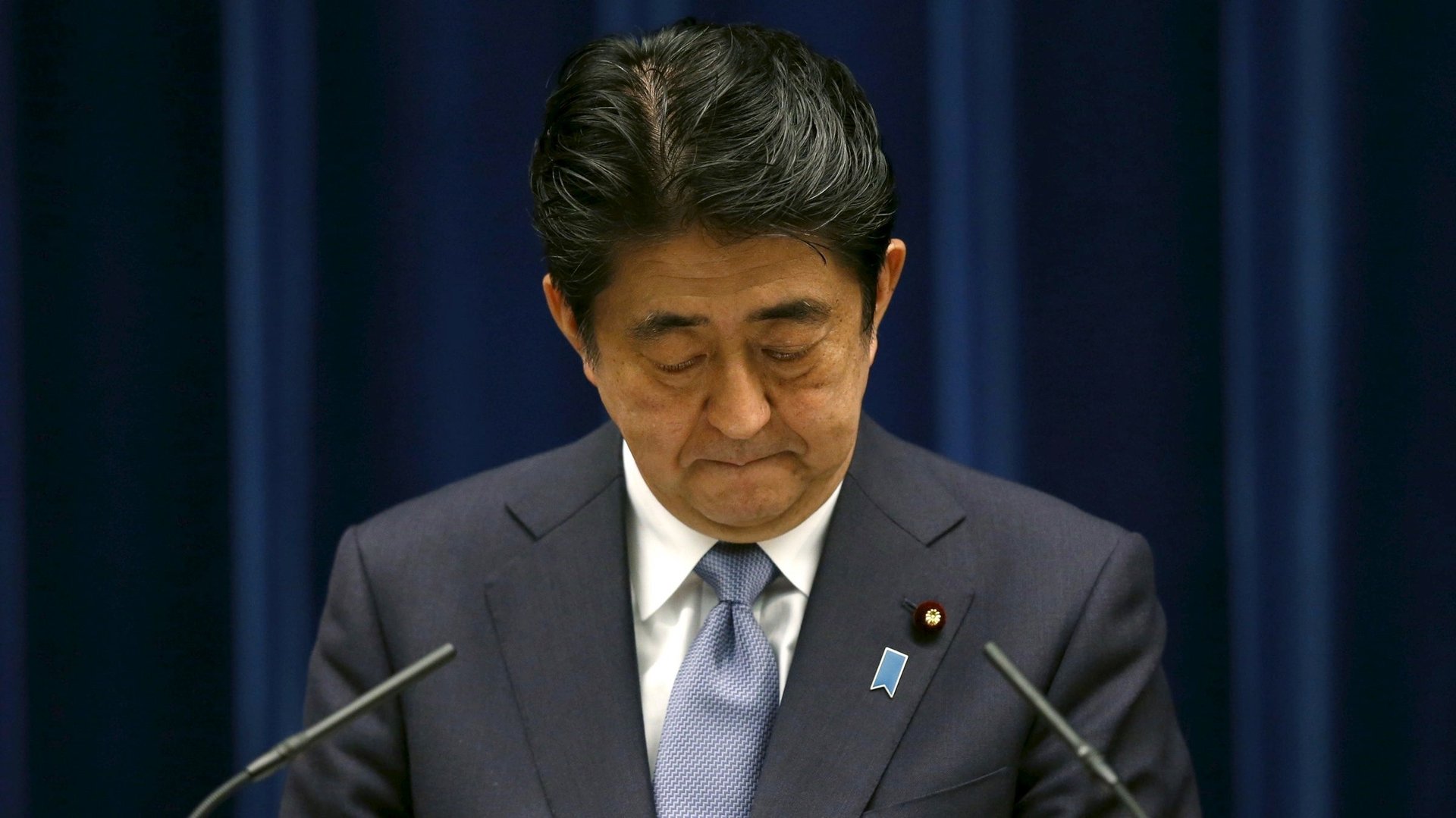Japan’s prime minister just apologized for his nation’s WWII actions—sort of
After weeks of “will he or won’t he?” Japan’s prime minister Shinzo Abe on Friday evening (Aug. 14) delivered a speech in Tokyo, the day before the 70th anniversary of the end of World War II, in which he, in a way, apologized for his nation’s past actions.


After weeks of “will he or won’t he?” Japan’s prime minister Shinzo Abe on Friday evening (Aug. 14) delivered a speech in Tokyo, the day before the 70th anniversary of the end of World War II, in which he, in a way, apologized for his nation’s past actions.
“Japan has repeatedly expressed feelings of deep remorse and heartfelt apologies for its actions during the war,” the prime minister said, leaving it open to interpretation as to whether the nation was doing so now. “We have engraved in our hearts the suffering of the people in Asia as our neighbors.” He listed countries, including Korea and China, that were victims of brutality at the hands of Japanese soldiers during the war.
The prime minister, however, also said future generations should not have to continue apologizing. “We must not let our children, grandchildren, and even further generations to come, who have nothing to do with the war, be predestined to apologize.”
The prime minister also had words for the West: “With their overwhelming supremacy in technology, waves of colonial rule surged toward Asia in the 19th century. There is no doubt that the resultant sense of crisis drove Japan forward to achieve modernization.”
In the speech, Abe walked a fine line between apologizing for his nation’s past misdeeds and arguing that what he, and other revisionists at home, have called Japan’s “masochistic” view of history needs to end. In short, Japan did bad things but was in part pushed toward doing them by others; it has apologized, and it’s time to move on.
Will it go over well? Probably not.
Minutes after Abe had delivered his speech, China’s state-run Xinhua News Agency sent a tweet focusing on his comments on future generations. Earlier in the day, in an editorial, the agency wrote, “Yet should history be any guide, even an apparently whole-hearted apology from Abe would not be enough.”
The buildup to the speech has given critics plenty of fuel. An unapologetic nationalist, Abe set up a committee to look into what he should say in his war statement months ago. It concluded he needed to acknowledge Japan’s brutal past but went on to criticize South Korea’s president Park Guen-hye. “Instead of moving to mend bilateral relations… President Park is pushing ahead with the emotion-based diplomacy toward Japan,” the report read.
Many in the Koreas were treated harshly during the war and relations remain icy. Many citizens feel Japan never apologized for enslaving women into sexual servitude. A South Korean man earlier this week set himself on fire at a protest about the sex slaves, euphemistically called comfort women. While in other nations anger does not reach such levels, plenty feel Japan has not done enough to atone for past deeds.
While Abe upheld the views expressed in previous statements on the war, he did so at a time of change for Japan. He is currently ramming through parliament bills that will allow Japanese soldiers to fight overseas for the first time since the war, despite the nation’s pacifist constitution.
He ended his speech using the doublespeak that has dominated parliamentary debate. “Japan will firmly uphold basic values such as freedom, democracy, and human rights,” he said. It will “hoist the flag of ‘proactive contribution to peace’ and contribute to the peace and prosperity of the world more than ever before.”
That has South Korea and China worried. They are quite happy with a fully pacifist Japan.
Some see the speech by Emperor Akihito tomorrow to mark the end of the war, on its Aug. 15 anniversary, as more important. They point out that he is a committed pacifist—something many, even in Japan, believe Abe is not.
Follow writer Richard Smart at @tokyorich.